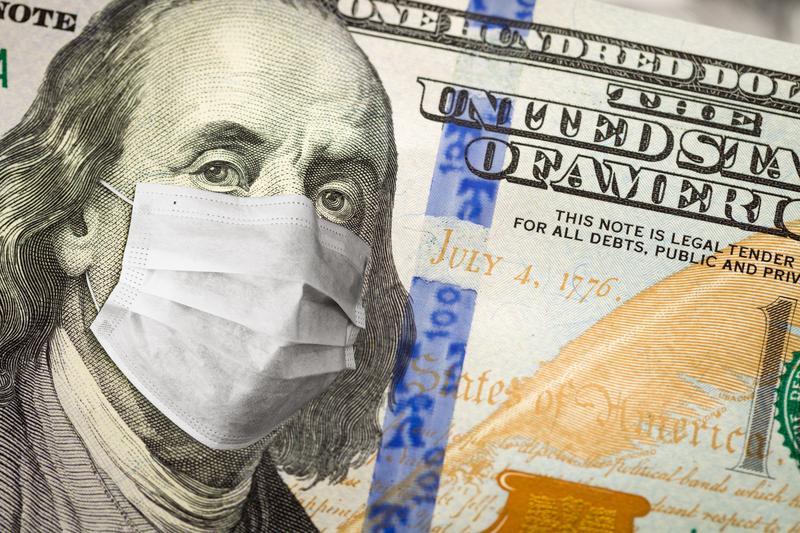The Coronavirus outbreak effects are widespread, and the National Pandemic impact seems to change daily, if not hourly. Many recent college graduates and soon-to-be graduates are asking themselves: “Do I have to keep paying for my student loans during this pandemic?” “What are the National Emergency interest rates?” “What’s the federal government response to the coronavirus and student loans?” “Do I have a federally held student loan?”
Here’s everything you need to know:
A Federal Student Loan Interest Waiver has been set a 0% interest rate, automatically.
According to a U.S. Department of Education
press release, delivering on President Donald Trump's word, for the next 60 days you will not accrue interest charges on your federal student loans. There is no action required from you if you have eligible ED owned loans.
Looking for more COVID-19 student-impact information?
Find it here.
The emergency 0% interest rate does not apply to private education loans.
According to studentaid.gov, this includes Direct Loans, Federal Perkins Loans and Federal Family Education Loans. Contact your private education loan servicer if you’ve been financially impacted by the Coronavirus pandemic.
**Important: Some Perkins Loan servicers are held by a college/institution. Commercial lenders/servicers own Some FFEL Program Loans. As these are not federally held loans, they DO NOT qualify for the emergency 0% rate. You’re encouraged to contact these loan providers individually.**
The 0% interest rate will be retroactively applied to March 13, 2020.
If you’re federal student loan qualifies (Direct Loans, Federal Perkins Loans and Federal Family Education Loans) your loan provider will retroactively apply your 0% interest to March 13. However, it may take some time to show up on your account. You can contact your loan provider to follow up on the interest rate and retroactive date.
As the government gets a clearer picture on the projected time frame and impact of the pandemic’s economic toll, it’s possible the 0% interest rate could be extended; you should visit the
Coronavirus and Forebearence Info for Students, Borrowers, and Parents Web page for the most recent updates.
Your monthly payment will not go down.
Although your interest rate has been waived for the next 60 days, you’re still expected to pay your established monthly payment. During this zero-interest period, your loan payments will be applied to your loan principal and/or your already accrued interest.
The good news is this period of 0% interest will help you to pay down the balance of your student loans quicker.
If you have or are experiencing a change of income, contact your loan servicer to lower your monthly payments.
You’re still expected to pay your monthly bill, even during the national emergency 0% interest adjustment period. However, if you have lost your job or have experienced a pay don’t hesitate; contact your loan servicers as soon as possible for relief. It’s likely could have your monthly payment lowered or suspended due to your hardship.
You may suspend your federal student loan payments for at least two months.
According to the
press release, the U.S. government has allowed borrowers to temporarily stop payments without accruing interest. This is also known as the National Emergency Disaster Forbearance (Administrative Forebearance) Act. Different from the typical forbearance, your interest rate will also be suspended while the U.S. is under the emergency, 0% interest waiver.
**You are responsible for reaching out to your student loan servicer to suspend your payments. Contact your servicer online or by phone.**
If your loan is more than 30 days past due your loan provider has been authorized by the Department of Education to automatically apply a National Emergency forebearance relief to delinquent accounts.
If you have a Public Service Loan Forgiveness Loan (PSLF) or are on any other type of repayment plan, you are encouraged to continue making your loan payments.
You’re encouraged to keep paying because the full amount of your payment will be applied to the principal amount of your loan once all interest accrued prior to President's Trump’s March 13 announcement is paid. This means you can take advantage of the federal student loan interest rate pause, to help you pay off your loan quicker.
**The National emergency forbearence “payments” do not count towards the Public Service or Income Driven Repayment (IDR) Loan Forgiveness plans.**
You’re encouraged to continue paying for your loans. However, if you’re struggling, you may qualify for a lower monthly payment in with an IDR plan. According to studentaid.gov, “a payment that could be as low as zero dollars. A zero-dollar IDR payment counts toward the required 120 payments.” Visit
studentaid.gov/idr to apply for an IDR plan or to update your income.
Any wage garnishments or student loan collections have been ceased for the time being.
According to a March 25, U.S. Department of Education
press release, "...the Department has stopped all requests to the U.S. Treasury to withhold money from defaulted borrowers’ federal income tax refunds, Social Security payments, and other federal payments." Borrowers delinquent in their federal student loans, should not expect payment call requests or wage garnishments from their employers for at least 60 days from March 13.
**If your wages continue to be garnished after March 13, you should contact your HR department.**
Included in this cease-collections/garnishment order, U.S. Secretary of Education Betsy DeVoss directed a $1.8 billion dollar refund in offsets for nearly a million delinquent, federal student loan borrowers.
How do I contact my loan servicer to lower my monthly, student loan payments?
There are many Americans that have been or will be financially impacted by the national COVID-19 emergency. If you are struggling, do not hesitate to contact your loan service provider.
According to
studentaid.gov, there are ten loan servicers owned by the U.S. Department of Education. You can find your federal loan servicers, their COVID-19-informational Web pages and contact information below:
CornerStone 1-800-663-1662
FedLoan Servicing (PHEAA) 1-800-699-2908
Granite State—GSMR 1-888-556-0022
Great Lakes Educational Loan Services, Inc. 1-800-236-4300
HESC/Edfinancial 1-855-337-6884
MOHELA 1-888-866-4352
Navient 1-800-722-1300
Nlenet 1-888-486-4722
OSLA Servicing 1-866-264-9762
ECSI 1-866-313-3797
If you do not recognize the servicers listed above, contact the Federal Student Aid Information center at 1-800-433-3243 to identify your student loan provider.

